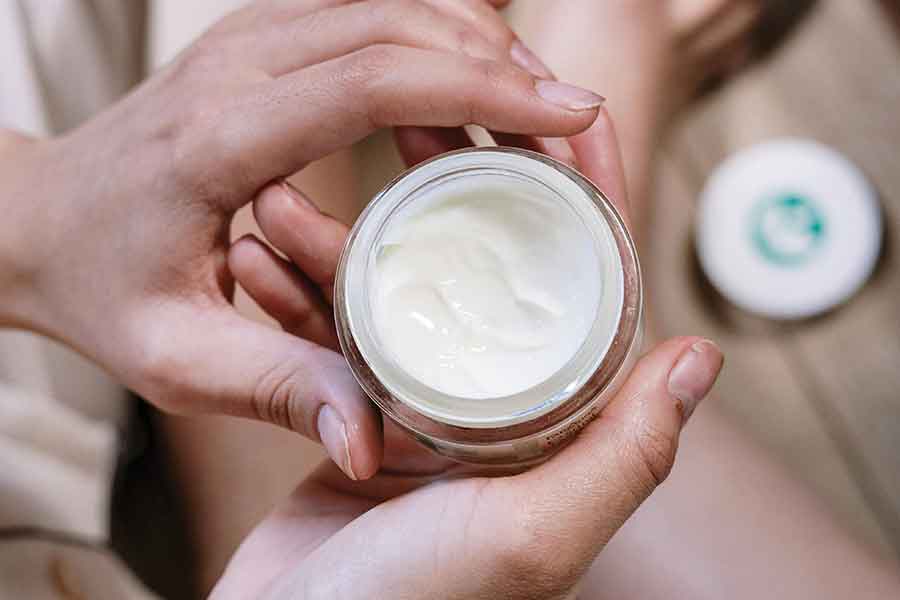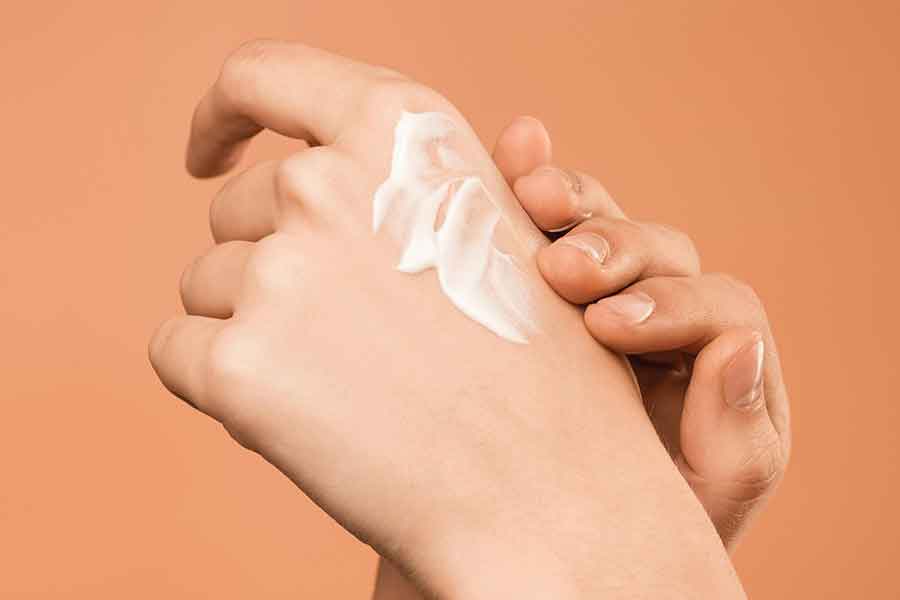Winter brings with it a sea of changes that impact the skin to a great level. The drop in the temperature in this season makes the skin dry and irritated. So what are the signs of dry skin during winters?
Dr. Apratim Goel, Medical Director, Cutis Skin Solutions explains, “The first sign of dry skin during winter is a stretchy, tight feeling on the skin – you may notice this especially after bathing. The skin may appear rough, flaky, or even scaly. If the dryness increases it can even cause redness, irritation, and fine cracks, leading to a dull complexion. In more severe cases, the skin may itch or feel sensitive, areas like the hands, elbows, and face are particularly prone to excessive dryness due to harsh weather conditions.”
Moisture, which is necessary to keep the skin barrier protected, decreases during the winter months in comparison to the summer season. This is another factor that contributes to irritation and dryness of the skin. Age also plays a major role as far as moisture level is concerned.
Marisa Goel, Managing Partner of Serena’s, Founder and CEO of The Skin Inn says, “Whatever the age of a person, winter months are harsh on the skin. Even in India winter takes a toll. This means that the products that we use in these months need to be extra hydrating. Thus our face wash, moisturizer, and sunscreen need to change. In people over the age of forty even the night cream needs to be heavier. I strongly recommend Repechage products for the skin as they have a complete range to suit all ages. Cleansing, toning, moisturizer and sunscreen is a must for all ages and all skin types.”
Dry skin Prevention
It is essential to understand how to prevent dry skin. Dr. Apratim Goel recommends the following prevention methods:
- Avoid hot showers and use lukewarm water instead
- Apply a thick, fragrance-free moisturizer immediately after bathing to lock in moisture
- Using a humidifier can also help maintain moisture levels in indoor air
- Drink plenty of water and incorporate hydrating foods like fruits and vegetables into the diet
Products for dry skin
The professional products ideal for dry skin in winter include rich emollients like ceramide-based creams or hyaluronic acid serums that hydrate deeply. Barrier-repair creams and products containing glycerin, squalane, or shea butter are also effective. Hydrating masks and overnight treatments enriched with oils like jojoba or rosehip can restore moisture and soothe skin overnight.
Treatments for dry skin
Now that we are aware of the causes and prevention of dry skin, let’s understand the treatment for dry skin.
According to Dr. Apratim Goel, hydrating facials such as the OxyGeneo, dermafrac, HydraFacial MD provide deep hydration and revitalize dry skin. Skin booster like mesotherapy with hyaluronic acid, PDRN, salmon DNA, PRP are quite effective in boosting hydration and improving collagen production in the skin.
For long-term results, non-invasive treatments like Radiofrequency (RF) facials can enhance skin texture by stimulating collagen production, which improves hydration and elasticity,” adds Dr. Apratim Goel.
Skin care regimen
As the climate changes, the skincare routine also needs to be changed, especially for dry skin in winter
#1. Start with a gentle hydrating cleanser
#2. Follow this with a hyaluronic acid serum to boost moisture levels
#3. Use a thick moisturizer containing ceramides or fatty acids to reinforce the skin barrier
#4. Follow this with a hyaluronic acid serum to boost moisture levels
#5. Use a thick moisturizer containing ceramides or fatty acids to reinforce the skin barrier
#6. Finish with sunscreen, even in winter
#7. In the evening, a nourishing night cream or oil can help lock in hydration along with an #8. Occasionally use a hydrating mask
Adopting this skin care routine will nourish the skin. However if this does not result in any improvement in dry skin during winter, it becomes important to consult a dermatologist. Especially when the skin becomes excessively dry, cracked, or painful, and if over-the-counter products don’t help. Persistent symptoms like redness, peeling, or itching often indicate conditions like eczema or dermatitis, which require medical treatment. Dermatologists can offer targeted therapies and prescribe medicated products to restore the skin’s health.
Oral supplements for winter dry skin
Supplements containing sodium hyaluronate, alpha lipoic acid, zeaxanthin, omega 3 fatty acids, vitamin E help retain moisture and improve hydration and elasticity from within. Antioxidants like vitamin C and glutathione support skin health by reducing oxidative stress. Always consult a healthcare professional before starting any supplement regimen.
“As we say ‘Prevention is better than cure’. Visit your dermatologist for a personalized skin care routine and in-clinic treatment before your skin starts showing signs of irritation and sensitivity,” concludes Dr. Apratim Goel.”












